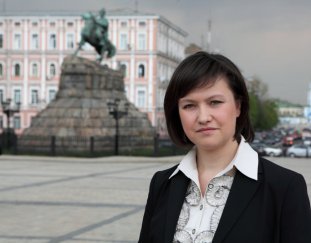Due to experts of the Ukrainian market of PR, outsourced PR-services in our country are gradually returning to the mark of 2006-2007, and by the end of 2010 they are going to be amounted to an average of 35% with a tendency to increase. Therefore, 2011 may mark a watershed for the Ukrainian market of PR-services, when customers PR-budgets and the share of PR-outsourcing will increase. Are these grounds for an optimistic assumption?
To clarify this issue, IAC «Publicity» conducted a survey of representatives of medium and large companies that operate in key markets (automotive, agricultural, financial, pharmaceutical, construction, food industry). As a result, representatives of 30 companies were interviewed.
The survey involved mostly marketers (44%) and the heads of marketing, advertising and PR departments (34% of respondents).
The answers to the key question - "Does your company attract currently external structures to implement its PR-action?" were divided as follows:
.jpg)
Diagram 1. The respondents answer to the question
"Does your company attract currently external structures to implement its PR-action?"
Thus, 60% of respondents said that their company provides PR-activities on their own, while 40% of surveyed attract to the work external PR-structures. Comparing this figure with data from previous surveys, it is worth noting an increase in the share of outsourcing PR services (from 35% in 2010 to 40% in 2011).
It should also be noted that the majority of respondents have experience of cooperation with the PR-agencies, and it was a positive experience.
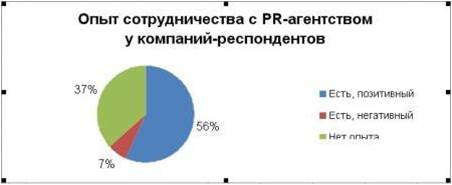
Diagram 2. The answer to the question
"In general, did your company have experience of cooperation with the PR-agencies (including the past experience)?"
On the other hand, 37% of respondents said that they had never used the services of PR-agencies. The negative experience of cooperation with the agencies had only 7% of the respondents.
It must be said that experts of IAC set the goal to pay attention to companies that currently do not delegate their PR-work for outsourcing (all previous surveys in Ukraine, on the contrary, focused on companies that cooperate with the PR-agencies). Such unusual perspective was explained quite simply - the agency already knows a lot about customers, which attract the PR-agency in its work, but virtually nothing is known about those who carry out activities on their own. And it’s up to 70% of the market. Rather, the capacity that can become a market of PR-services if those companies "open" it to external structures.
From this perspective, we can recall the famous thesis of Trout about the need to study "nonclients". It can give a completely new understanding of the strengths and weaknesses of marketing parties. The same idea was conveyed to the audience by Chan Kim and Renee Moborn in their book "Blue Ocean Strategy" ...
In this vein we should pay attention to open-ended question "What was the negative experience of your cooperation with the PR-agencies." Typical answers of the respondents are as follows:
∙ Insufficiently clear and strict agreement with the agency - as a result - an incomplete and uncontrolled implementation of obligations;
∙ The agency has failed the effectively fulfilling the assigned tasks;
∙ A clear marketing and reputational result (declared by the agency or expected by the client) haven’t been made.
Other companies - 56% of polled - have a positive experience of cooperation with the PR-agency. The lack of cooperation with the PR-agencies at the present time appeared the most surprising. Thus, respondents answers to the open question "For what reason, having a positive experience of cooperation with the outsourcer, you do not use his services at the current time" are:
∙ Lack of market activity for serious PR-campaigns;
∙ No need for active PR-activities in no competitive environment;
∙ A small budget for PR-activities;
Thus, the "external market" reasons were called among principal, so we can conclude that the denial of PR-agencies services is temporary and related to the crises in the market. It can be suggested that after the markets and companies exit from the crisis the volume of outsourcing PR-activities, at least, will take up again.
So what actually are the advantages of outsourcing in PR? Agencies know the answer to this question very well, but from the perspective of the customer's picture may look very different.
Thus, choosing from the answers suggested as “pluses” of PR-outsourcing (compared to the implementation of PR-activities by the company), respondents answered as follows.
.jpg)
Diagram 3. The answer to the question: "What, to your opinion, pros of outsourcing PR-services?"
From the diagram it follows that as the most significant advantages of outsourcing PR-services company representatives named the agency experience, the ability to perform large amounts of agency activities, as well as creativity and new ideas that the agency is able to offer. Thus it is obvious that the image of the ideal outsourcing company in their eyes - PR-agency with considerable experience in the PR-market services, which can carry significant amounts of work, at the same time creative enough - which is monitoring the latest trends, able to offer innovative approaches.
Logically, the next question to the respondents concerned the cons of PR-outsourcing.
As can be seen from the diagram, the main disadvantage of PR-services outsourcing customers feel the need for constant monitoring of the activities of the PR-agency from their side (we can assume that this may be primarily caused by to a lack of experience, professionalism, or a sufficient number of specialists in the agency). Significant disadvantages, according to respondents, are also overpriced services of PR-agencies and the lack of attention to low-budget projects. Based on the contrary, to the image of the ideal outsourcer should be added considerable independence in the implementation phase of the project, without loss of efficiency, the ability to work well with medium and small PR-budget companies, as well as the validity of the price of their own PR-services. Please note, customers do not feel "high" prices, they name them "overestimated" prices (transcript of the answer in the questionnaire "discrepancy between price and amounts or quality of work").
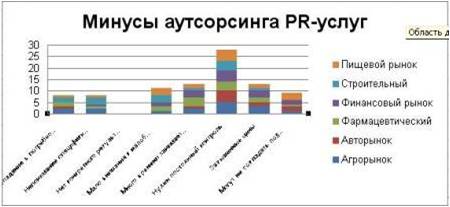
Diagram 4. The answer to the question: "What, in your opinion, cons of PR-services outsourcing?"
The next question to the respondents concerned the “one-off”/ “one-time” PR-services that can presumably be interested, even to those companies that currently don’t give away their PR-work for outsourcing. So, according to respondents answers, the company is theoretically ready to purchase the following services:
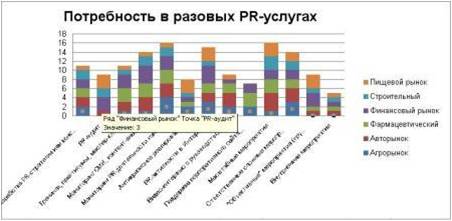
Diagram 5. The answer to the question: "What one-time services, products you would theoretically buy from the PR-agency?"
As can be seen from the chart, the most interesting for potential customers are such one-time PR-services as monitoring the PR-activities of competitors, PR-Internet activity (blogging, commenting on publications, etc.) as well as organization and assistance in organizing the very large scale, or a particularly complex and demanding PR-activities.
The organization and conducting activities for public and crisis management (trimming customer’s reputation) didn’t cause great interest of the respondents. But the "less popular" one-off PR-services usually have their potential customers.
Here are some of the opinions of the respondents (hereinafter referred to information provided with the consent of the respondents).
Advertising and PR specialist of in PTC "Agromat" W. Bregenets doesn’t exclude the interest of their company in PR-activity on the Internet, and brand manager of OAO "Plant JBI of S.Kowalska” V.Kozlov said that his company’s interest is in the independent evaluation of PR-activities of the company by invited agency (PR-audit). In general, it is worth to note that respondents are interested in a one-off PR-services offered by the PR-agencies with no long-term contracts, but there is a need for detailed informing companies about the possibilities and effectiveness of the aforesaid PR-services and products.
Among other things, the not attracting outsourcing respondents were asked an open question “Under what conditions will your company start to work with a PR-agency?” The summarized results of the responses to this open question are in diagram 6:
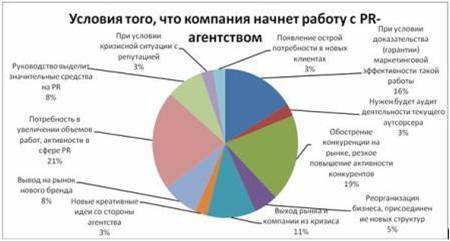
Diagram 6. The answer to the open-ended question: “Under what conditions will your company start to work with a PR-agency?”
The most popular answers to this question became three rather different answers in orientation:
∙ The need for increasing amount of the work and PR-activity prompted by various factors;
∙ The company may begin to cooperate with the PR-agency after provided marketing effectiveness evidence (assurance) of such cooperation from the side of the agency;
∙ When there will be increased competition, a rapid increase of competitors activities in the market.
In addition to these conditions, there were often referred the market and the company output of the crisis, bringing a new brand to market, as well as the release of company executives a significant PR-budget allowing intensive PR-activities.
However, it is worth noting that companies that previously had no experience of cooperation with the PR-agencies are unlikely to objectively evaluate the effectiveness of cooperation. Making benefits evaluation after cooperation is possible only during such cooperation or as a result of it. So, in a situation when the agency is not involved, the company can’t get such experience as the agency doesn’t have an opportunity to ‘prove’ anything, in fact ... It is a vicious circle, breaking which, logically, can be done only by the company itself.
Often, respondents were not limited to one answer to that question and listed many factors. For example, the marketing director of “IVECO Ukraine” Oleg Yurchenko responding to a question, said: "Our company could have resumed to attract outsourcers to PR-activities in case of recovering the market of commercial vehicles. If the market will "come alive" and the competition will increase, probably a need for intensive PR-activities occurs”.
Leading marketing and advertising expert of PAO "Bank Tavrica" Yulia Peslyak in her turn expressed her willingness to cooperate with the PR-outsourcer only if the PR-agency will undertake achieving specific marketing results that would be guaranteed and prescribed in the contract.
Ruslana Plis, the head of IAC Publicity, said: "With regard to the end of the crisis, the question arises - whether to wait for a sharp increase in activity of competitors, rather than ‘anticipate’ this activity through their own actions? And is it right to expect a "big» PR-budget in a situation when today the performance depends not only of allocated funds, but from PR-agency professionalism? It is clear that PR is just the tool to bring the reputation and marketing benefits in times of crisis and post-crisis period, as well as within the average budget".
In summary, it is worth noting that representatives of the Ukrainian companies surveyed are fully aware of the need and importance of PR-activities per se. Moreover, in most cases there is a positive attitude to attracting agencies-outsourcers.
The fact that at the moment most companies are not using outsourcing, is due to several main factors: many Ukrainian markets has not "abandoned" from the crisis yet, a sluggish competition is observed on these markets, and therefore there is allegedly no need for intense, thoughtful, creative PR, which able to offer a professional agency. For this reason, in the companies small budgets are allocated for PR-activities and most of PR-agencies are not ready to work with such budgets.
Indeed, as it was noted by Valery Kureiko, the CEO of Publicity Creating: “The agency professionalism appears while working with average budgets, when you need to offer the most effective tools and provide the best result for less money. Of course, it can be done only by professionals”.
In general, it can be predicted: the output of the Ukrainian economy from the crisis will spur a new wave of Ukrainian companies’ interest to PR-services outsourcing.


















![/images/mod_banners/teva[2].jpg /images/mod_banners/teva[2].jpg](/images/mod_banners/teva[2]_zoom_width_145_height_110.jpg)
![/images/mod_banners/abbyy_logo_300dpi_7812[1].jpg /images/mod_banners/abbyy_logo_300dpi_7812[1].jpg](/images/mod_banners/abbyy_logo_300dpi_7812[1]_zoom_width_145_height_110.jpg)
![/images/mod_banners/lazolvan[1].jpg /images/mod_banners/lazolvan[1].jpg](/images/mod_banners/lazolvan[1]_zoom_width_145_height_110.jpg)
![/images/mod_banners/29[1].jpg /images/mod_banners/29[1].jpg](/images/mod_banners/29[1]_zoom_width_145_height_110.jpg)
![/images/mod_banners/Korporaciya_20Bogdan_1[1].jpg /images/mod_banners/Korporaciya_20Bogdan_1[1].jpg](/images/mod_banners/Korporaciya_20Bogdan_1[1]_zoom_width_145_height_110.jpg)
![/images/mod_banners/vitmark[1].jpg /images/mod_banners/vitmark[1].jpg](/images/mod_banners/vitmark[1]_zoom_width_145_height_110.jpg)

![/images/mod_banners/i[3].jpg /images/mod_banners/i[3].jpg](/images/mod_banners/i[3]_zoom_width_145_height_110.jpg)
![/images/mod_banners/lenovolockup_pos_color[1].jpg /images/mod_banners/lenovolockup_pos_color[1].jpg](/images/mod_banners/lenovolockup_pos_color[1]_zoom_width_145_height_110.jpg)

![/images/mod_banners/42975-hi-Avon_Logo[1].jpg /images/mod_banners/42975-hi-Avon_Logo[1].jpg](/images/mod_banners/42975-hi-Avon_Logo[1]_zoom_width_145_height_110.jpg)
![/images/mod_banners/skoda[1].jpg /images/mod_banners/skoda[1].jpg](/images/mod_banners/skoda[1]_zoom_width_145_height_110.jpg)


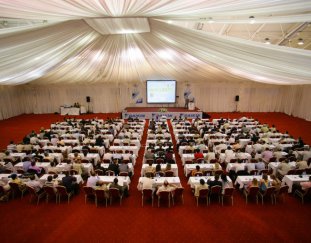


_zoom_311x243.jpg)
